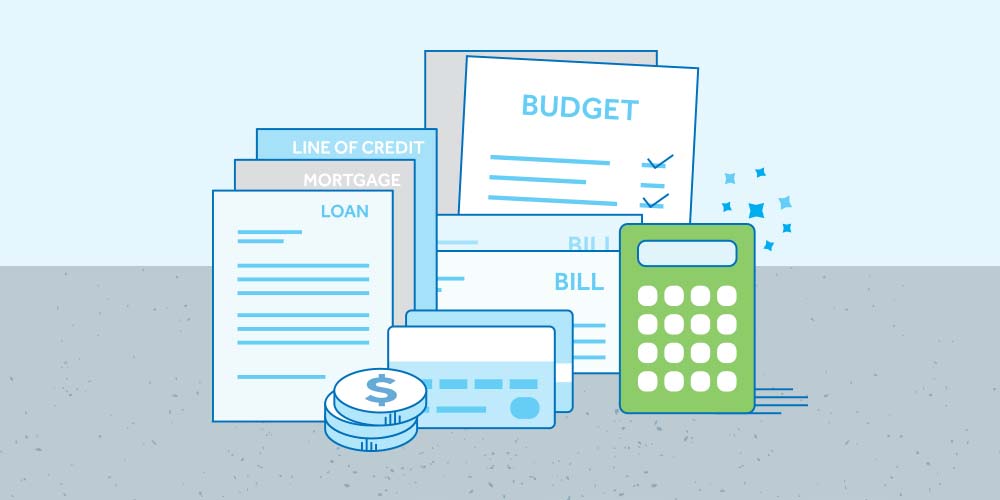Gone are the days where you had to save up for what you wanted because easy credit wasn’t an option. We live in a world where you can have what you want today and pay for it later. That's resulting in situations where we've taken on more debt than we're comfortable with.
If you feel you might be in a situation where your outstanding debt is growing faster than you pay it off, the important first step in regaining control and becoming debt-free is to create a plan. Here's how to get started.

Understand your situation
Add up the total amount of your debt, excluding your mortgage if you have one (reason being you're already on a repayment schedule with this debt). You’ve probably been focusing on your monthly payments, but it’s time to see the big picture. How much do you owe in total? You need to know. Now look at your minimum monthly debt payments, including your mortgage. Note: if the total is close to or over your monthly income, you may require professional help to manage your debt.
Account for your money
Track your money and see what you're spending each month, then develop a realistic debt repayment budget that takes into account balancing your needs versus wants (emphasis on the needs). The budget should not be what you spend now – that’s what got you here. Cut costs wherever you can (we have 80 tips to show you how). Scale back on your cable and phone plans, for example, or eliminate unnecessary expenses like eating out. Reducing as many discretionary expenses as you can means you can direct more money toward paying down your debt.
Develop a schedule
Schedule time at least twice a month to sit down and pay bills, balance your budget and file your important papers. Staying organized helps you keep your focus and also lessens the chance you'll forget a payment that's due.
Ask how to lower your monthly payments
Call your credit card company and ask how to lower your highest interest rates. Even a small reduction in the rate can save you hundreds of dollars and help you pay off your principal balance faster.
Transfer your high interest debt
Transfer the balances of your highest debt (usually a credit card) to a lower interest credit card or line of credit. If you have a lot of high interest debt, a consolidation loan may be your best option (but it's always best to get advice from a financial advisor). After you've done this, it's important to take steps to avoid dipping into that high interest credit again. If it's a credit card, this might mean removing it from your wallet so it's not easily accessible in the face of an impulse purchase, or could even mean closing the account all together (only once all your credit cards are paid off).
Consolidate your debt with our 5-year loan special Get started
Pay off your high interest debt first
Identify your debt with the highest interest rate. Make the monthly minimum payments to all of your other debts and use the rest of your debt payment budget on the high interest debt. Do this every month until you've paid off that first (highest interest) debt. Then move on to the debt with the next highest interest rate and repeat the process. Note: you may want to leave debts with tax deductible interest, like student loans, last because maximizing these benefits can save you money at tax time.
Sell some of your assets
Do you have three cars but only need two or one? Do you own recreational vehicles (boat, RV) that you only use once a year? Consider selling these items to pay your debt. Remember, they're likely contributing to your budget problems with extra expenses such as storage and insurance.
Earn more money
Take a second job (side hustle) or work some overtime until your debt is under control. You could also look into some ways to generate passive income to increase your debt repayment budget.
By this point you'll have put in a lot of effort examining your total debt situation and creating a plan to pay it off, but the work doesn't stop there. It's important to be aware of how you got into this situation so you can approach debt more responsibly in the future.
Read Part 2: Stay debt-free

